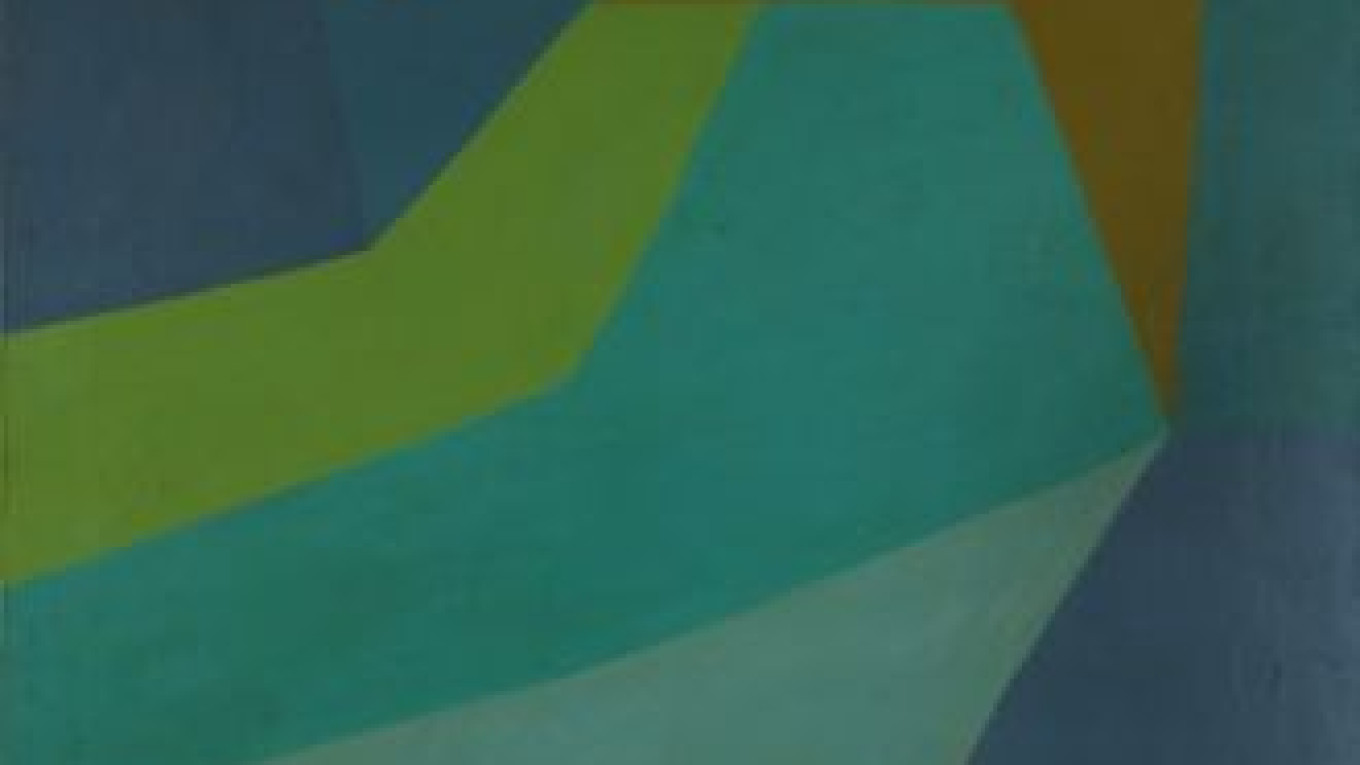When nonconformist artists Mikhail Odnoralov, Mikhail Roginsky and Lev Bruni hung up a coat at the underground art movement’s first major sanctioned exhibition, at Moscow’s Exhibition of National Economic Achievements, or VDNKh, in 1975, the coat became a symbol of the avant-garde spirit of nonconformism.
Called “Odnoralov’s Coat,” it held an ordinary bottle of kefir in its pocket and a sign that said, “Don’t touch.”
“It was just a joke, and that joke took on historical significance,” said Lidia Iovleva, a curator of the Tretyakov Gallery’s new exhibition “Mikhail Odnoralov. Retrospection,” which displays a re-creation of “Odnoralov’s Coat” and more than 60 of Odnoralov’s paintings.
It is now seen as one of the first art objects in Soviet history — the only other coat hanging in a Moscow museum at the time was in the Lenin Museum.
The collection on display spans the artist’s beginnings in Russian nonconformism and on to his postmodernist development after his emigration to the United States in 1980. It is the first exhibition of Odnoralov’s post-emigration paintings in Russia.
“We at the museum know Odnoralov as a name of the 1960s, ‘70s, ‘80s, as one of the participants of Soviet underground art, but we knew little about his current work, after emigration, and wanted to see it,” Iovleva said.
“Retrospection” displays Odnoralov’s work chronologically, allowing visitors to see the development of his ideas, themes and technique. Born in Moscow in 1944, Odnoralov was a student of Robert Falk, a member of Russia’s early 20th-century avant-garde. Odnoralov also cites the work of Giorgio Morandi, Kazimir Malevich and Piet Mondrian as influences on his early work.
Nonconformist art saw itself as a second Russian avant-garde, rooting itself in earlier modernism and in opposition to the official social realism. The movement formed after the death of Stalin and continued until the perestroika and glasnost of the 1980s. In its first years, the artists were banned from public exhibitions, so they exhibited in apartments and sometimes public parks, where their display was once famously bulldozed by the government in 1974.
“Odnoralov was younger than many of his colleagues and was very active, searching out apartments where private exhibitions could be held,” Iovleva said.
Odnoralov’s paintings from the 1960s and ‘70s are still lifes, portraits and cityscapes in desolate colors. Scattered pots, flowers, mannequin arms and jars of caviar poise hauntingly on various planes in space. In a minimalist period in the 1980s, he washed the canvas of color and reduced the perspective to a single line of horizon.
By the 1990s, Odnoralov was developing pop-art-influenced themes that continue to obsess him in his recent work. In one series, naked and sleeping pubescent girls are placed on sharp geometric backgrounds, each broken by a New York apartment building peeking out of a corner. Odnoralov says the girls are inspired by Lewis Carroll’s Alice.
“I don’t paint a psychological type. I paint a kind of general image. The girls are all images of Alice,” Odnoralov said.
“The 20th century has ended but still hasn’t ended. The 21st century has begun but still hasn’t begun. We still don’t know what it will bring and how it will be different,” he said. “‘Alice in Wonderland’ is a border situation. She herself and all the characters border. The cat who existed doesn’t exist at the same time. It’s beautiful.”
“Mikhail Odnoralov. Retrospection” runs at the Engineering Building of the Tretyakov Gallery until Feb. 28. 12 Lavrushinsky Pereulok. Metro Tretyakovskaya, Polyanka. Tel. 951-1362, www.tretyakovgallery.ru.
A Message from The Moscow Times:
Dear readers,
We are facing unprecedented challenges. Russia's Prosecutor General's Office has designated The Moscow Times as an "undesirable" organization, criminalizing our work and putting our staff at risk of prosecution. This follows our earlier unjust labeling as a "foreign agent."
These actions are direct attempts to silence independent journalism in Russia. The authorities claim our work "discredits the decisions of the Russian leadership." We see things differently: we strive to provide accurate, unbiased reporting on Russia.
We, the journalists of The Moscow Times, refuse to be silenced. But to continue our work, we need your help.
Your support, no matter how small, makes a world of difference. If you can, please support us monthly starting from just $2. It's quick to set up, and every contribution makes a significant impact.
By supporting The Moscow Times, you're defending open, independent journalism in the face of repression. Thank you for standing with us.
Remind me later.


